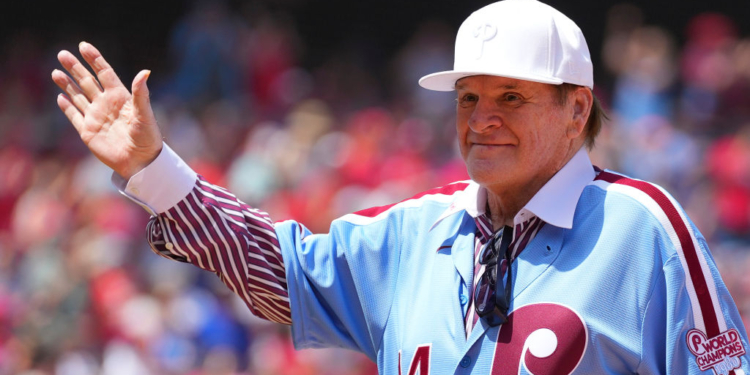Pete Rose was a study in contrasts.
He was Major League Baseball’s all-time hit king, but he was also banned from the sport he loved after he gambled on his own team.
Rose, known as “Charlie Hustle,” has died. He was 83.
Rose’s death was confirmed by a spokesperson for the Clark County Office of the Coroner/Medical Examiner in Nevada, CNN reported.
Rose had a storied career in baseball and was MLB’s all-time hitter with 4,256 hits over a 24-season career.
He was a member of three World Series champion teams – the Cincinnati Reds in 1975 and 1976 and the Philadelphia Phillies in 1980. His accolades are plenty. He was voted to the National League’s All-Star team 17 times and won both the National League Rookie of the Year award in 1963 and the Most Valuable Player award in 1973.
But all of his achievements faded when he was found gambling on his own team, a move that had him banned from baseball and kept him from the Baseball Hall of Fame.
In 1989, MLB hired a lawyer after it received news that Rose bet on MLB games.
According to Rule 21 in the MLB, personnel who bet on games when they have a “duty to perform” will be declared permanently ineligible.
The resulting report concluded Rose did bet on the baseball. This included Reds games in 1985 and 1986, years he was both a Reds player, as well as 1987 when he was the team’s manager.
Rose was banned from baseball for life by Commissioner A. Bartlett Giamatti in August 1989.
Giamatti said Rose could apply for reinstatement after one year if he demonstrated a “redirected, reconfigured, rehabilitated life.”
On the day he was banned, Rose said he believed he would be “out of baseball for a very short period of time.”
For years Rose denied betting on baseball and, therefore, was denied reentry into the sport.
In 2004, Rose admitted betting on baseball and the Reds, but said he never betted against his own team.
In his 2004 autobiography, “My Prison Without Bars,” Rose said he started betting as a way “to recapture the high I got from winning batting titles and World Series.”
“I had huge appetites, and I was always hungry. It wasn’t that I was bored with the challenges of managing the Reds – I just didn’t want the challenges to end,” he wrote.
Since he knew gambling meant a permanent ban, “I denied the crime,” he wrote.
The denials – and subsequent suggestions that Rose still wasn’t telling the whole truth – were damaging. Giamatti never got to consider a reinstatement, as he died eight days after banning Rose.
MLB Commissioner Rob Manfred denied Rose’s request for reinstatement in 2015.
Manfred said Rose admitted only to having bet on baseball in 1987 while he was just managing the Reds and not the other times revealed in the report that got him banned.
The commissioner wrote Rose’s comments “provide me with little confidence that he has a mature understanding of his wrongful conduct.”
Rose later wrote in his 2019 autobiography, “Play Hungry” about his gambling.
“I’m not a man who goes around saying sorry, but on this one, I’m truly sorry,” he wrote.
“I know that if I ever make the Hall of Fame in some way, it’s sure to be long after I’m gone from this world,” Rose wrote. “But I want you to know how I loved baseball, and that I lived a life dedicated to the sport, and played the game the way it should be played … always all out.”


























 Continue with Google
Continue with Google